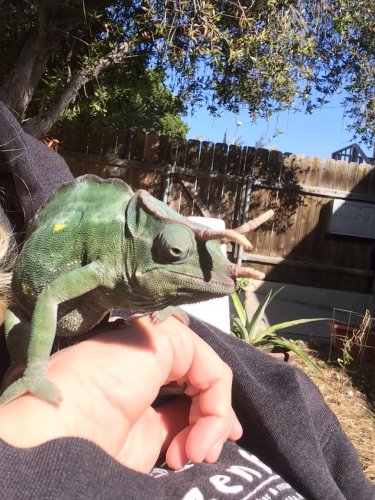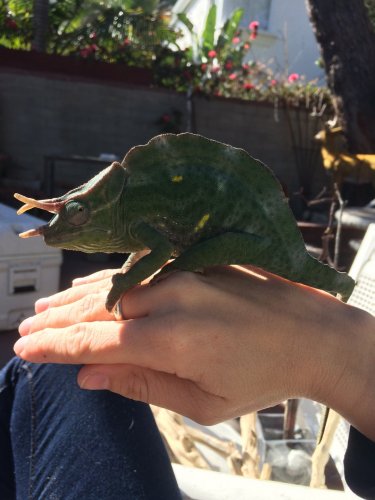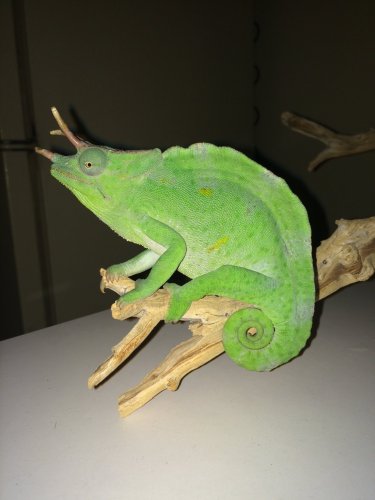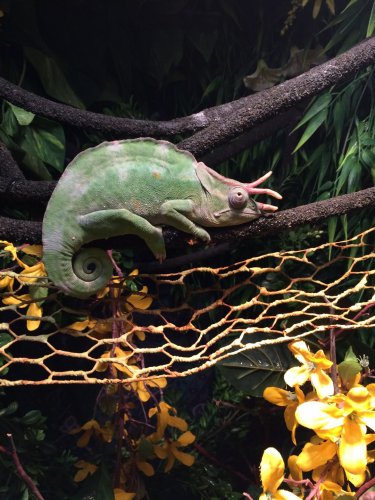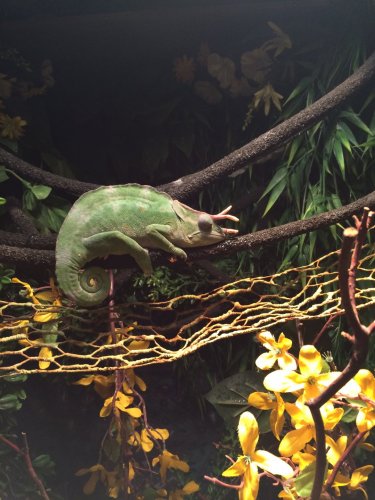AxelsMum
Member
Hii,
My deremensis has been on a hunger strike since Feb. 5th, I took him to the vet last week where they force fed him in hopes of jump starting his appetite. He has always been a great eater/drinker until recently. Nothing has changed in his habitat and I have tried spicing up his diet but it doesn't seem to be working. Earlier in the week I was able to get two small crickets in him (barley). He seemed to be interested in eating but scared to use his tongue, so I ended up putting them about 1 cm away from his mouth and slipped them onto his tongue when he opened slightly. The vet check out his mouth and found no issues. Tomorrow I am going in to learn how to force feed him but I am very nervous. My cham is a total mama's boy and I have only been nothing but gentle to him. I am afraid of constantly stressing him out daily with food (but I know he needs the nutrition). I was wondering if anyone on here has had success in force feeding leading into the cham being able to eat on his own again. He hasn't lost any weight since the food strike but I haven't found a single dropping in his habitat/ I have always hand fed him. I tried leaving food in his habitat but that didn't seem to work either.
What do you use to force feed? How can I provide him the best/the most nutritious? The vet had mentioned baby food or glucosamine?
My deremensis has been on a hunger strike since Feb. 5th, I took him to the vet last week where they force fed him in hopes of jump starting his appetite. He has always been a great eater/drinker until recently. Nothing has changed in his habitat and I have tried spicing up his diet but it doesn't seem to be working. Earlier in the week I was able to get two small crickets in him (barley). He seemed to be interested in eating but scared to use his tongue, so I ended up putting them about 1 cm away from his mouth and slipped them onto his tongue when he opened slightly. The vet check out his mouth and found no issues. Tomorrow I am going in to learn how to force feed him but I am very nervous. My cham is a total mama's boy and I have only been nothing but gentle to him. I am afraid of constantly stressing him out daily with food (but I know he needs the nutrition). I was wondering if anyone on here has had success in force feeding leading into the cham being able to eat on his own again. He hasn't lost any weight since the food strike but I haven't found a single dropping in his habitat/ I have always hand fed him. I tried leaving food in his habitat but that didn't seem to work either.
What do you use to force feed? How can I provide him the best/the most nutritious? The vet had mentioned baby food or glucosamine?



